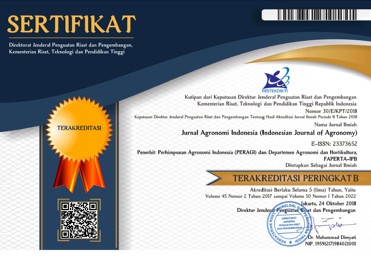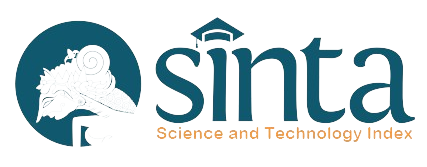Evaluation of Somaclones Peanut Plants Regenerated from Repeat Cycles of In Vitro Selection Against Drought Stress
Abstract
The objective of this research was to evaluate the response of somaclonal peanut plants regenerated from repeated cycles of in vitro selection on medium containing 15% polyethylene glycol (PEG; w /v, corresponding to - 0.41 Mpa osmotic potential) against drought stress. The R2 generation of peanut plants were used in this experiment with cv "Kelinci" and "Singa" as control cultivars. Drought treatment was the plants irrigated with water to fi eld capacity (optimum condition) while other plants were grown under water deficit. Drought treatment was given at 16 to 85 days old peanut plants; after 85 days old, the plants were treated under optimum condition until plants were ready to harvest. Drought stress was measured using drought sensitivity index value (S) on scored parameters. Results of the experiment showed that peanut lines produced from repeated cycles of in vitro selection in medium containing 15% PEG were more tolerant to water deficit, had a better vegetative growth, a higher dry pod yield, and a lower dry pod yield reduction. This research demonstrated that repeated cycles of in vitro selection method was effective to produce drought tolerant peanut genotypes with a higher proline content than genotypes without in vitro selection.
Keywords : somaclonal variation, polyethylene glycol, drought tolerance












